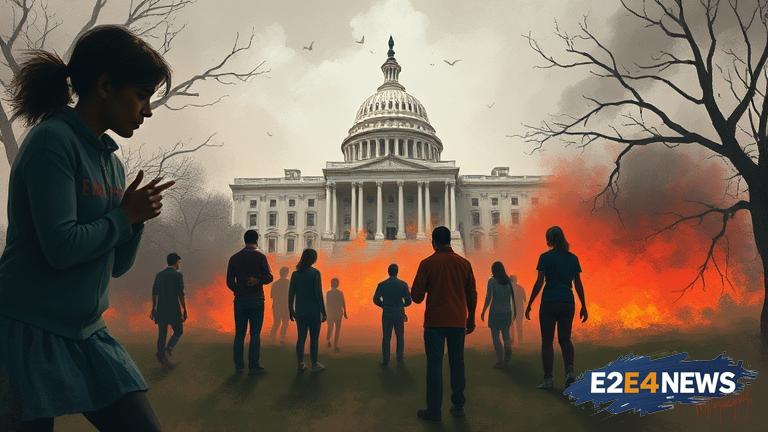The recent expiration of federal grants for domestic violence programs has sent shockwaves across the United States, leaving countless victims of domestic abuse without access to essential services and support. For decades, these programs have provided a lifeline for those trapped in violent relationships, offering counseling, shelter, and legal assistance. However, with the loss of federal funding, many of these programs are now facing an uncertain future. The impact of this funding cut will be felt nationwide, with domestic violence shelters, counseling services, and advocacy groups all struggling to stay afloat. The consequences of this decision will be devastating, with thousands of victims forced to go without the help they so desperately need. Domestic violence is a pervasive issue that affects millions of Americans, with one in four women and one in seven men experiencing severe physical violence at the hands of an intimate partner. The lack of funding for these programs will only exacerbate this problem, leaving victims vulnerable to further abuse and exploitation. Many organizations that provide domestic violence services are now scrambling to find alternative sources of funding, but this is a daunting task. The federal grants that have been lost accounted for a significant portion of their budgets, and replacing this funding will be a significant challenge. Some organizations are turning to private donors and foundations for support, while others are exploring new partnerships with local businesses and community groups. However, these efforts may not be enough to fill the gap left by the loss of federal funding. The expiration of these grants is a result of a broader trend of decreased government support for social services, which has been exacerbated by the current economic climate. As a result, many domestic violence programs are being forced to reduce their services or close their doors altogether. This is a tragic outcome, given the critical role that these programs play in supporting victims of domestic violence. Without access to these services, many victims will be left to navigate the complex and often dangerous process of leaving an abusive relationship on their own. This can be a daunting and even life-threatening task, particularly for those who are isolated or lack a support network. The loss of federal funding for domestic violence programs is a national crisis that requires immediate attention and action. It is imperative that policymakers and community leaders come together to find a solution to this problem, and ensure that victims of domestic violence continue to have access to the support and services they need. One potential solution is to increase funding for domestic violence programs through private donations and corporate sponsorships. Another approach could be to advocate for policy changes that prioritize the needs of domestic violence victims and provide additional resources for these programs. Ultimately, it will require a concerted effort from all stakeholders to address this crisis and ensure that domestic violence victims receive the support they deserve. The federal government must take responsibility for providing adequate funding for domestic violence programs, and work to create a more sustainable and equitable system for supporting these vital services. By doing so, we can help to create a safer and more just society for all, where victims of domestic violence can access the help they need to rebuild their lives and thrive. The clock is ticking, and it is imperative that we take action now to address this crisis and ensure that domestic violence victims continue to have access to the support and services they need. The consequences of inaction will be severe, and it is our collective responsibility to act with urgency and compassion to address this critical issue. As the situation continues to unfold, it is essential that we remain vigilant and committed to finding a solution that prioritizes the needs of domestic violence victims. Only through collective action and advocacy can we hope to mitigate the damage caused by the loss of federal funding and create a brighter future for those affected by domestic violence.





